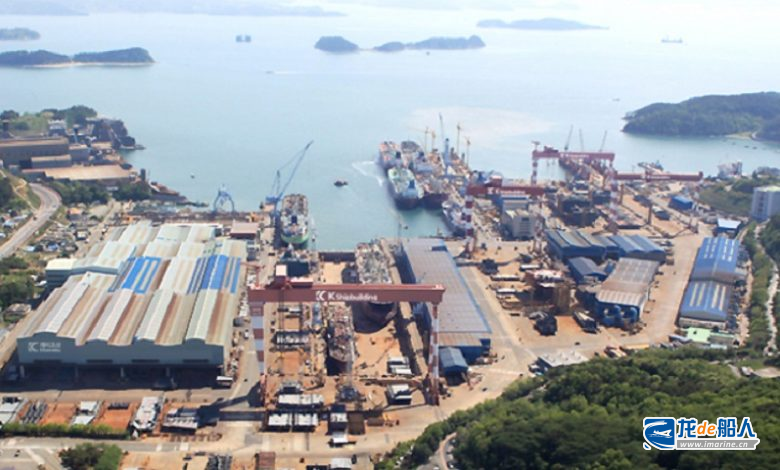South Korean private equity fund company KH Investment Group (KHI) and South Korean distressed asset management company United Asset Management Company (UAMCO), which is operated by major South Korean banks, have selected a lead manager for the sale of K Shipbuilding (formerly STX Offshore & Shipbuilding), and have officially started the sale process. Many South Korean defense companies and heavy industry companies are closely watching this transaction, hoping to use the acquisition of K Shipbuilding as an opportunity to enter the ship maintenance, repair and overhaul (MRO) business.

South Korean media reported that the KHI-UAMCO consortium has selected Samil PwC as the lead manager for K Shipyard’s sale. Samil PwC plans to complete seller due diligence by the end of August and issue an investment memoranda (IM) in September, aiming to select a preferred negotiating partner through a bidding process within the year.
The KHI-UAMCO consortium plans to take advantage of the recovery in the shipbuilding industry to sell 99.58% of K Shipbuilding’s shares for approximately 500 billion won (approximately US$359 million). This price is based on a price-to-book ratio of 1.2 to 1.5 times, which the industry considers to be relatively reasonable.
The sale is not open to foreign private equity investors, as the aim is to find a Korean buyer. The acquisition price and the management capabilities of potential buyers are key considerations for the KHI-UAMCO consortium. In addition to the sale of equity, UAMCO also hopes to recover the 150 billion won debt it extended to K Shipbuilding through debt restructuring.
K Shipbuilding originated from Dongjo Shipbuilding Industry, established in 1967, and is a medium-sized shipyard in South Korea. After being acquired by the STX Group in 2001, it was renamed STX Offshore & Shipbuilding and once grew to become the fourth-largest shipbuilding company in the world. However, following the outbreak of the 2008 financial crisis, STX Offshore & Shipbuilding suffered severe setbacks due to cash flow constraints caused by the prolonged downturn in the global shipbuilding industry, as well as the consequences of its previous excessive expansion into international markets.
In 2013, STX Offshore & Shipbuilding began debt restructuring; in 2016, the Seoul Central District Court of South Korea announced the approval of STX Offshore & Shipbuilding’s self-rescue restructuring plan; in July 2017, STX Offshore & Shipbuilding completed debt restructuring and could accept orders normally; in 2018, creditor Korea Development Bank issued it an advance payment guarantee, enabling it to accept two new orders for chemical/product oil tankers.
In 2021, the KHI-UAMCO consortium acquired 95% of STX Offshore & Shipbuilding for 250 billion won and renamed it K Shipbuilding. Four years later, the KHI-UAMCO alliance began seeking to recoup its investment.
After K Shipbuilding announced its listing for sale, several Korean companies, including large companies based on heavy industry, major defense industry companies, and medium-sized companies hoping to develop shipbuilding as a new business, expressed strong interest. These companies are keen on the potential of entering the ship MRO business through K Shipbuilding.
Currently, K Shipbuilding primarily builds product tankers and has yet to enter the MRO business. However, due to its geographical location within the US military’s air defense network, K Shipbuilding is considered well-suited for MRO operations. Following the acquisition of K Shipbuilding, if K Shipbuilding can acquire MRO shipyards in locations like Hawaii and actively secure orders to strengthen its competitiveness, it is expected to rapidly emerge as a strong competitor in the MRO market.
A South Korean industry insider said, “Although the shipbuilding industry is subject to significant fluctuations, expanding the MRO business can help optimize the business model more stably. Most companies interested in acquiring K Shipbuilding are considering entering the MRO market in the future.”
It is worth noting that before announcing the sale, K Shipyard had experienced losses for 14 years and successfully turned losses into profits in 2024. According to Clarkson data, K Shipbuilding currently holds a backlog of nearly 30 ships, with MR product tankers as its main product. Once regarded as a “bad” company, K Shipbuilding has now achieved a remarkable turnaround, with delivery dates for its backlog extending to 2027 and an average shipyard utilization rate of 110%.


